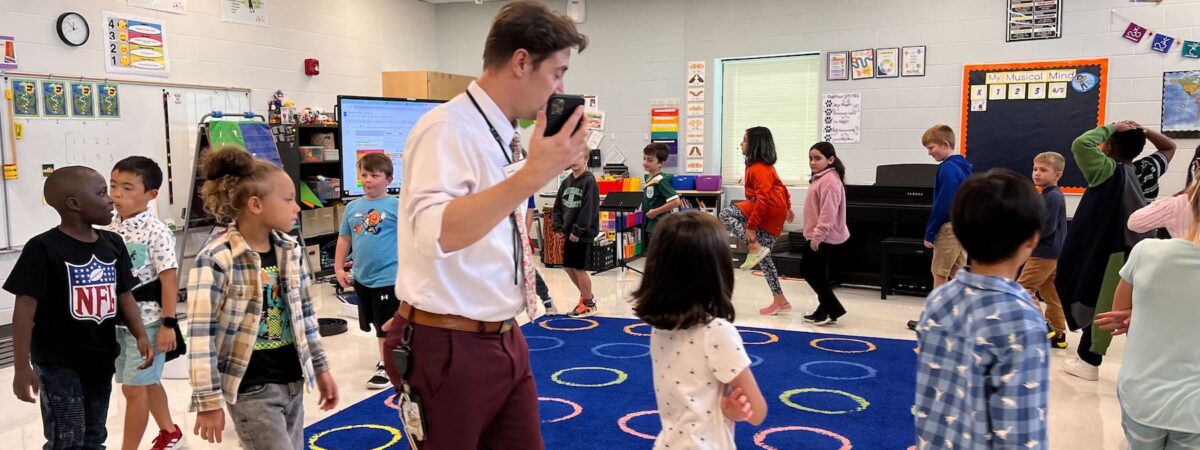
This year’s Global Cities Education Network (GCEN) Symposium was held in Lexington, Kentucky, and co-hosted by Fayette County Public Schools and Commerce Lexington. School system and community leaders from Denver, Surrey (Canada), Calgary (Canada), the U.S. Virgin Islands, and Bermuda convened in-person in Lexington, while representatives from Singapore, Peru, Joinville (Brazil), Shanghai (China), and Adelaide (South Australia) joined virtually.
Over the course of four days, participants engaged in hands-on sessions focused on creating an ecosystem for more equitable, personalized, and relevant learning for all. GCEN teams were treated to a first-hand view of community-led education innovations happening in Fayette County through school visits focused on arts education, primary dual language immersion, and secondary career academy programs. In addition, student leaders from the Kentucky Student Voice Team shared their work on research-based authentic student voice to improve school climate in Kentucky.
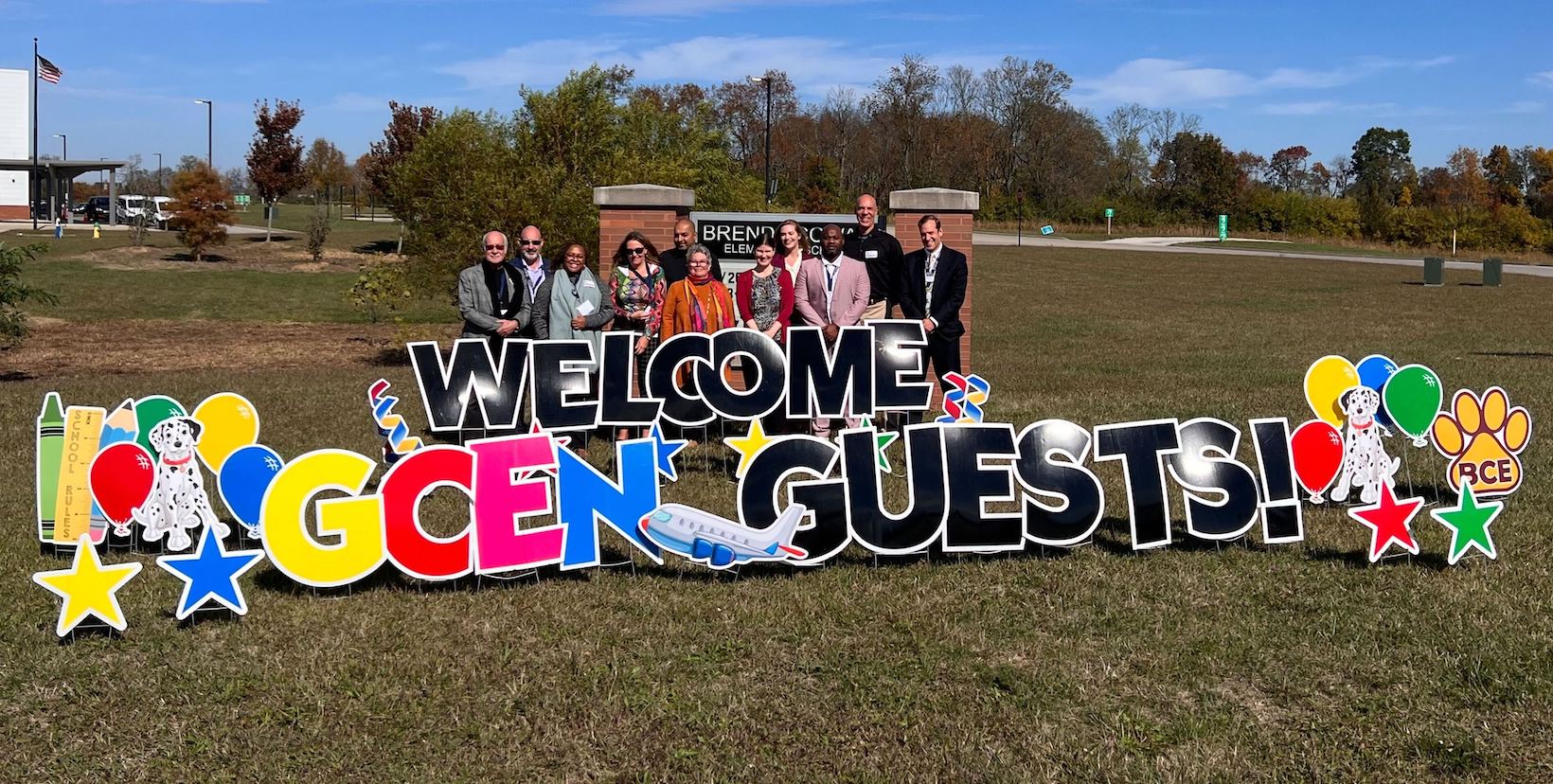
GCEN members convene in Kentucky for a symposium co-hosted by Digital Promise, Fayette County Public Schools, and Commerce Lexington.
Throughout the course of the symposium, five global education trends emerged:
Fayette County Public Schools has developed a Portrait of a Graduate with five strategic priorities to ensure that students are academically prepared, culturally competent, equipped for the future, civically engaged, and college and career ready. To meet these goals, they have worked in partnership with Ford Next Generation Learning and community partners to develop career academies within three of their public high schools.
The Academies of Lexington are small learning communities where students pursue academics alongside hands-on learning for high-demand careers, such as IT, healthcare, engineering, law, and business. During their freshman year, students are exposed to a variety of career options before selecting an academy and career pathway to pursue in grades 10 to 12, based on their interests and goals. Central to the model are deep community partnerships with local businesses and organizations, who facilitate job shadowing, mentoring, apprenticeship, internship, and capstone opportunities, with a goal of meeting the need for a skilled, career-ready workforce. Debriefing on the school visits, GCEN participants noted that they were surprised by the level of freedom, agency, engagement, and pride they observed among the students in these schools.
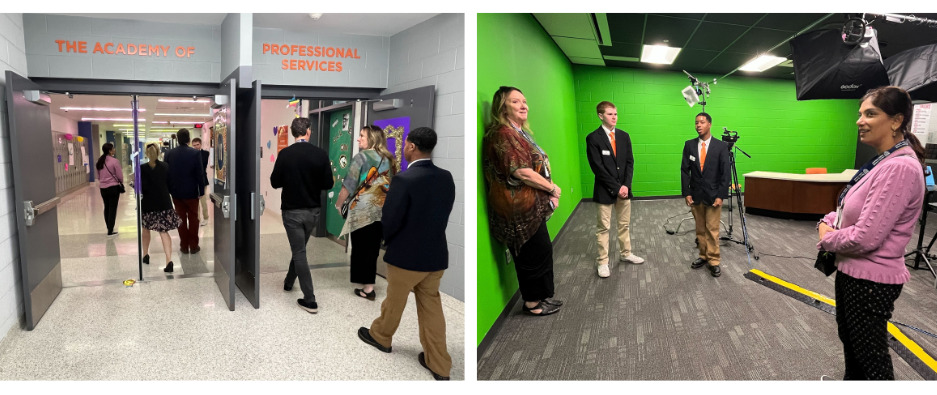
Student ambassadors from Frederick Douglass High School lead symposium participants on a tour of their career academies.
Akilah Allen, director of R&D strategy and projects for Digital Promise’s Center for Inclusive Innovation, moderated a panel on diversity, equity, inclusion, and well-being with representatives from Denver Public Schools, Surrey Schools, Calgary Catholic Schools, and the Kentucky Student Voice Team. The districts spoke about their strategies and structures to center student voice and well-being while promoting equity across their systems. Raima Dutt of the Kentucky Student Voice Team and the Kentucky Commissioner’s Student Advisory Panel also emphasized the value of student leadership in this work: “A lot of adults think that student voice is receiving input on their decisions; we believe that it’s co-designing the work.”
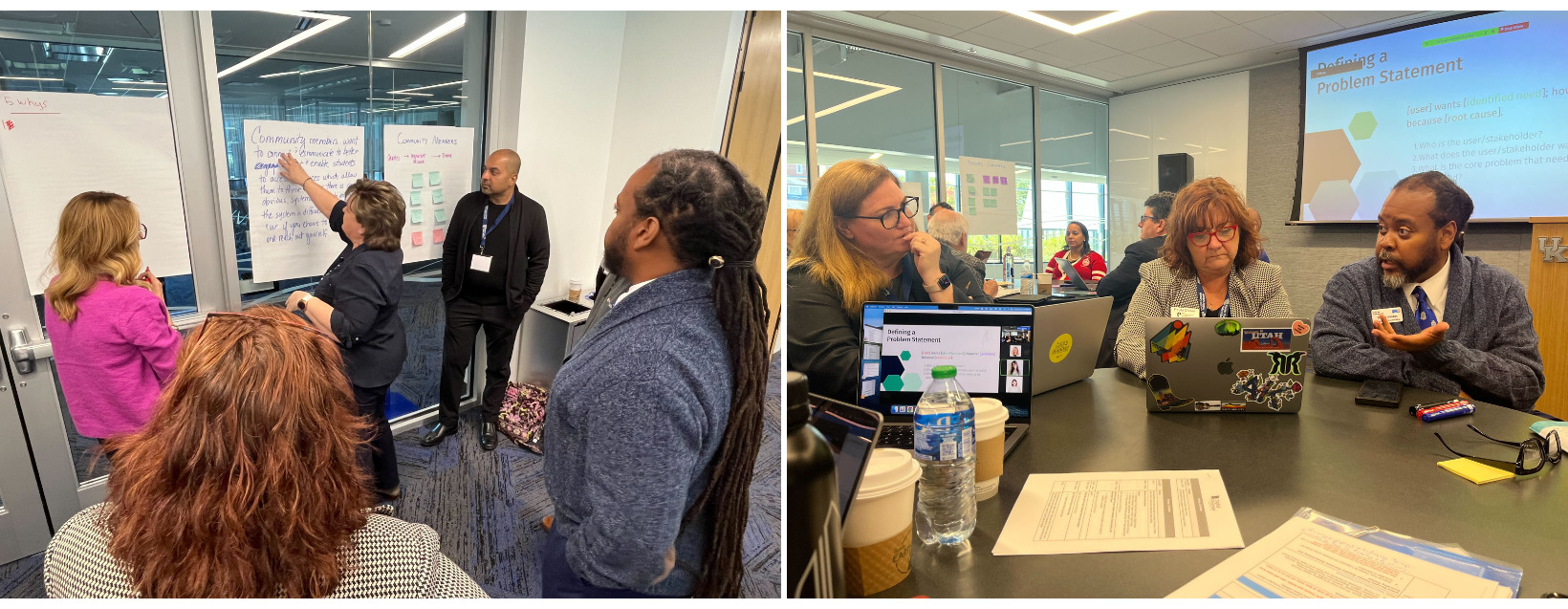
Symposium participants learn about local community members’ perspectives on education through co-design activities.
Doannie Tran (Partner for Liberatory Co-Creation at the Center for Innovation in Education) led participants in an interactive workshop exploring the Kentucky Department of Education’s “United We Learn” initiative: an inclusive process that brought together a diverse coalition of family members, students, teachers, school and district leaders, and community members from across the state to understand individuals’ experiences with the education system. Through tools such as empathy interviews and root-cause analyses, the coalition identified and unpacked systemic problems in order to co-create a shared vision for the future of education across the state. Eleven community members from Fayette County—including students, parents, and business leaders—participated in this session to share their experiences with the local education system.
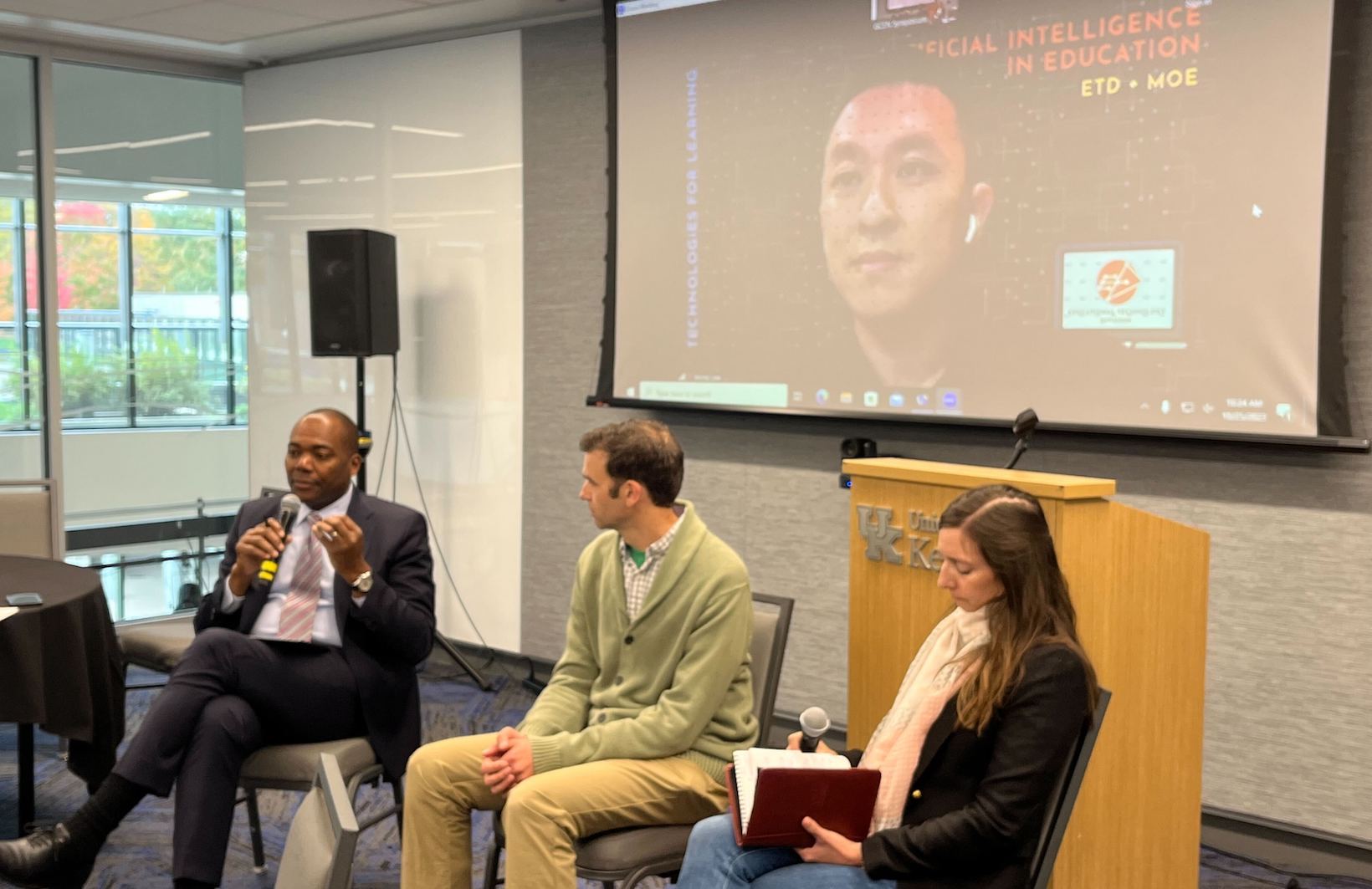
Digital Promise President and CEO Jean-Claude Brizard moderates a panel on “AI, Equity, and the Future of Education.”
Jean-Claude Brizard, president and CEO at Digital Promise, moderated a panel entitled “AI, Equity, and the Future of Education” with Kenny Low, senior assistant director of the educational technology division at the Singapore Ministry of Education; Donnie Piercey, 2021 Kentucky teacher of the year; and Pati Ruiz, senior research scientist of learning sciences and emerging technologies at Digital Promise. The panelists emphasized the role of humans in designing AI and limiting its biases, as well as the need to move away from concerns over cheating to a broader conversation about AI literacy that enables students and educators to understand how large language models work and explore creative opportunities to use these tools.
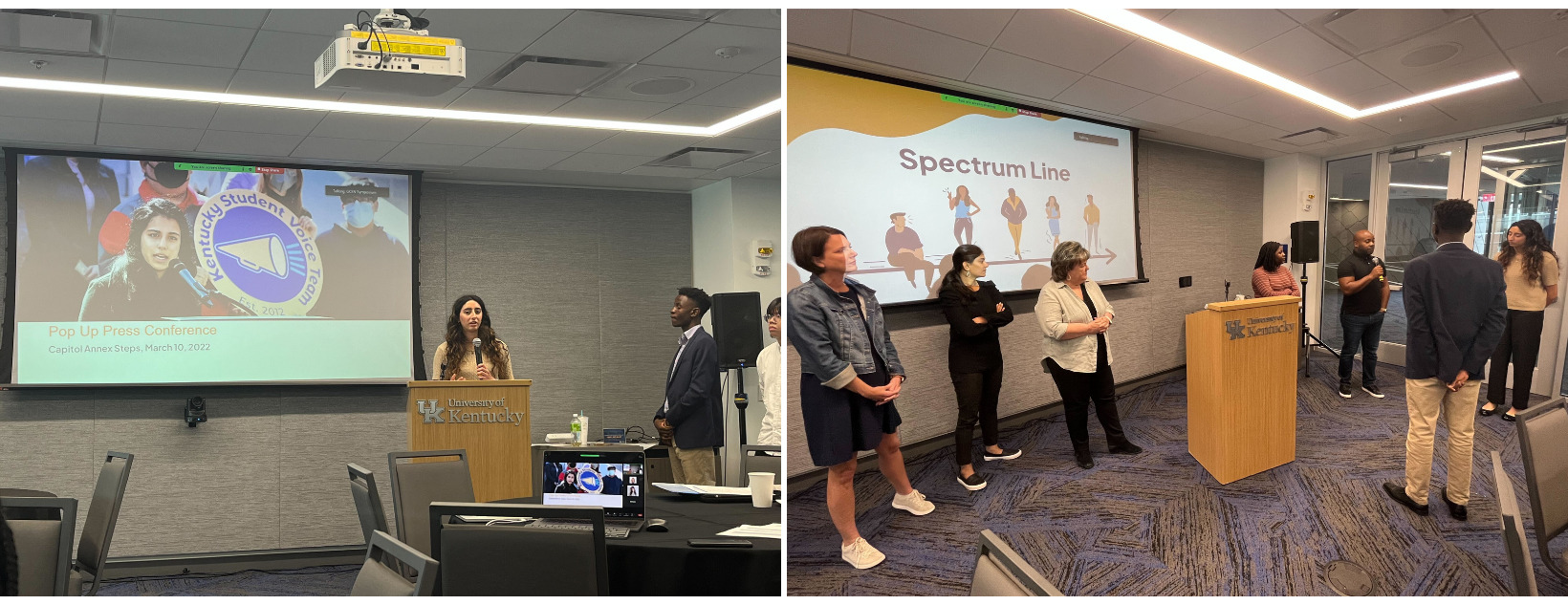
Members of the Kentucky Student Voice Team model their work to unleash student agency to improve school climate in Kentucky.
In a memorable and inspiring session, representatives from the Kentucky Student Voice Team led participants in an interactive exploration of their work over the past decade to amplify and elevate authentic student voice and support students as partners in improving Kentucky schools. For example, they published the “Race to Learn” report based on the responses of 10,725 Kentucky middle and high school students from 114 counties who took their “Race, Ethnicity, and School Climate Student” survey. In the words of the students: “We are young people co-creating more just, democratic Kentucky schools and communities as research, policy, and storytelling partners.” It was clear that these students have a central role to play in leading current and future change efforts in Kentucky.
By the end of the week, participants were ready to take ideas, strategies, and innovations back to their own education systems. One member noted that they had already talked with leaders at home about ways to enhance student voice work in their district. Another participant shared that the event reenergized them to continue pursuing the hard work of “radical incrementalism” in their system, even when wide-scale reform feels difficult. Seeing the courageous, authentic, and vulnerable leadership in Lexington, which genuinely elevates parent and student voices, provides a model for what is possible when communities come together to co-create a shared vision for education.
Do you want to know more about the Global Cities Education Network (GCEN) or are you interested in joining? Explore the network, learn more about the GCEN Advisory Board, or email Heather Singmaster, director of GCEN, at hsingmaster@digitalpromise.org.